
Dr Zulqarnain Rashid
Senior Research Fellow & Technical Lead
Biography
Dr Zulqarnain Rashid is a Senior Research Fellow and Technical Lead for Digital Healthcare at the Institute of Psychiatry, Psychology & Neuroscience at King's College London. Joining King’s College London in November 2017, he has been actively leading numerous cross-functional projects. His role includes leading efforts in product development, collection and analysis of data from wearable devices and smartphones across various disease areas. He collaborates with project funders, clinicians, software developers and data scientists on several multidisciplinary grants.
Previously, he was a post-doctoral researcher at the University of Dundee, where he worked on Assistive Technologies in collaboration with the University of Cambridge. He designed and developed assistive mobile interfaces for individuals with severe communication and physical disabilities, focusing on Augmentative and Alternative Communication .
He earned a PhD in Information and Communication Technologies from Pompeu Fabra University Barcelona in January 2016. His doctoral research focused on promoting the independent living of wheelchair users through the Internet of Things paradigm. Prior to this, he worked as a researcher in the Biomedical Engineering department at Kyung Hee University in South Korea, specialising in healthcare and ubiquitous computing.
Dr Rashid has collaborated on the following projects:
- MAAM: Measuring Adult ADHD and Menstruation
- EDIFY: Eating Disorders: Delineating Illness and Recovery Trajectories to Inform Personalised Prevention and Early Intervention in Young People
- AIMS-2-TRIALS: Autism Innovative Medicine Studies - 2 – Trials
- ART-CARMA: ADHD Remote Technology (ART) Study of Cardiometabolic Risk Factors
- RADAR-CNS: Remote Assessment of Disease and Relapse – Central Nervous System
- ART: Attention Deficit Hyperactivity Disorder (ADHD) Remote Technology
- RADAR-AD: Remote Assessment of Disease and Relapse – Alzheimer’s Disease
- ACE-LP: Augmenting Communication using Environmental data to drive Language Prediction
- racerCaixa: Independent Shopping Experience for Visually and Mobility Impaired, Spain
Research interests
- Digital Healthcare
- Internet of Things
- Ubiquitous Computing
- Accessibility
- Mobile Health
Key publications
- Remote Monitoring of Epilepsy Patients with Wearable Device and Smartphone
- RADAR-base Platform: Digital phenotyping of mental and physical conditions through remotely collected wearables and smartphone data
- RADAR-base: open source mobile health platform for collecting, monitoring, and analysing data using sensors, wearables, and mobile devices
- Using Augmented Reality and Internet of Things to improve accessibility of people with motor disabilities in the context of Smart Cities
- RADAR-base: Major Depressive Disorder and Epilepsy Case Studies
- An independent shopping experience for wheelchair users through augmented reality and RFID
Expertise and public engagement
Dr Rashid has given invited talks, including "Studies Using Wearable Devices", "Big Data in Urban Mental Health", "Wearable Devices and mHealth", as well as speaking about DevOps Solutions at DevOps Live. He has also written an article for The Conversation "Shopping is hellish for disabled people – augmented reality could be the fix".
Research
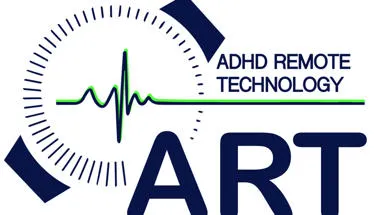
ADHD Remote Technology (ART)
The ADHD Remote Technology (ART) research programme focuses on the development and application of a novel remote measurement technology system for ADHD
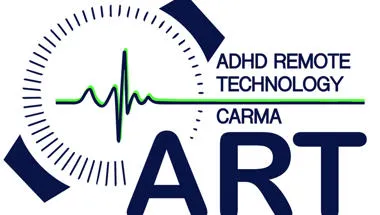
ART-CARMA – The ADHD Remote Technology study of cardiometabolic risk factors and medication adherence
ART-CARMA, the ADHD Remote Technology study of cardiometabolic risk factors and medication adherence, is a large remote monitoring project on adults with ADHD.
Project status: Ongoing
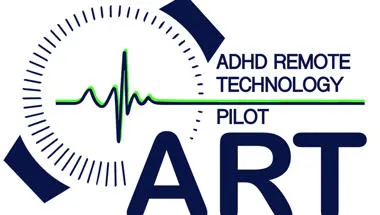
ART-pilot
The ADHD Remote Technology pilot feasibility study (ART-pilot) involves the initial development stages of the new remote measurement technology system for ADHD
Project status: Completed
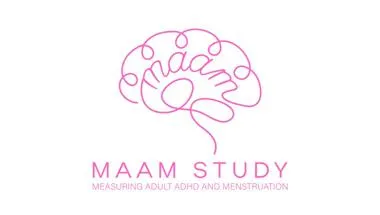
MAAM – Measuring Adult ADHD and Menstruation Study
The Measuring Adult ADHD and Menstruation (MAAM) Study is a collaborative project on women with ADHD between Queen Mary University of London and King’s.
Project status: Ongoing

RADAR-CNS (Remote Assessment of Disease and Relapse – Central Nervous System)
Project examining the potential of smartphones and wearable devices to manage and treat brain disorders like multiple sclerosis (MS), epilepsy, and depression.
Project status: Completed
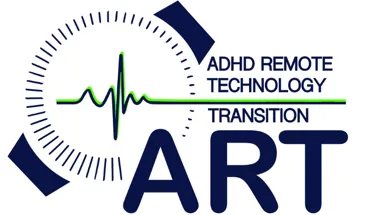
ART-transition - ADHD Remote Technology and ADHD transition: predicting and preventing negative outcomes
ADHD Remote Technology and ADHD transition: predicting and preventing negative outcomes (ART-transition) is a five-year MRC-funded research programme.
Project status: Ongoing
Research

ADHD Remote Technology (ART)
The ADHD Remote Technology (ART) research programme focuses on the development and application of a novel remote measurement technology system for ADHD

ART-CARMA – The ADHD Remote Technology study of cardiometabolic risk factors and medication adherence
ART-CARMA, the ADHD Remote Technology study of cardiometabolic risk factors and medication adherence, is a large remote monitoring project on adults with ADHD.
Project status: Ongoing

ART-pilot
The ADHD Remote Technology pilot feasibility study (ART-pilot) involves the initial development stages of the new remote measurement technology system for ADHD
Project status: Completed

MAAM – Measuring Adult ADHD and Menstruation Study
The Measuring Adult ADHD and Menstruation (MAAM) Study is a collaborative project on women with ADHD between Queen Mary University of London and King’s.
Project status: Ongoing

RADAR-CNS (Remote Assessment of Disease and Relapse – Central Nervous System)
Project examining the potential of smartphones and wearable devices to manage and treat brain disorders like multiple sclerosis (MS), epilepsy, and depression.
Project status: Completed

ART-transition - ADHD Remote Technology and ADHD transition: predicting and preventing negative outcomes
ADHD Remote Technology and ADHD transition: predicting and preventing negative outcomes (ART-transition) is a five-year MRC-funded research programme.
Project status: Ongoing
